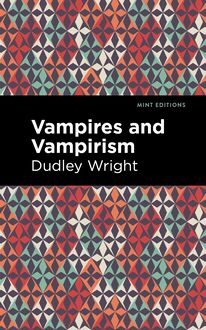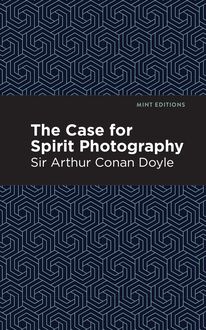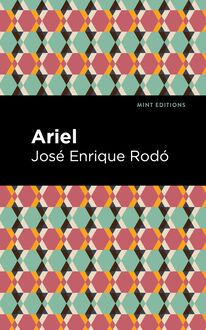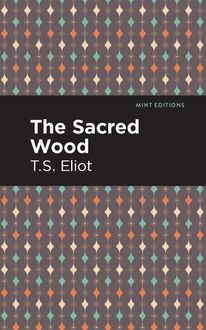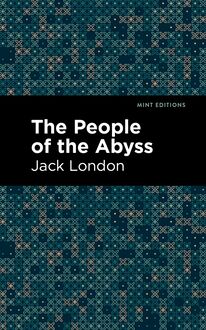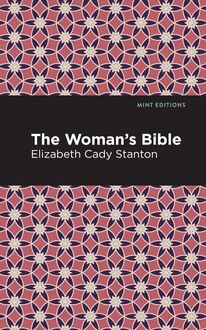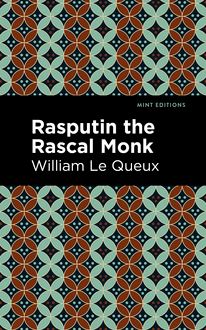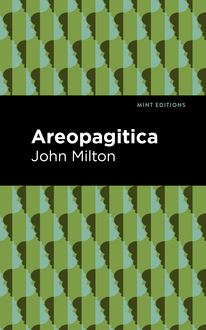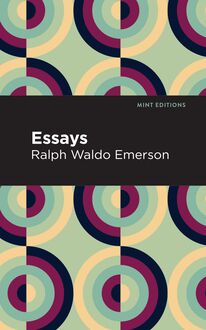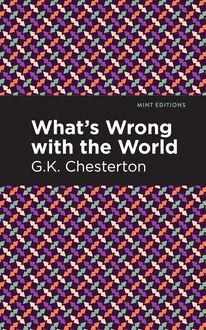-
 Univers
Univers
-
 Ebooks
Ebooks
-
 Livres audio
Livres audio
-
 Presse
Presse
-
 Podcasts
Podcasts
-
 BD
BD
-
 Documents
Documents
-
- Cours
- Révisions
- Ressources pédagogiques
- Sciences de l’éducation
- Manuels scolaires
- Langues
- Travaux de classe
- Annales de BEP
- Etudes supérieures
- Maternelle et primaire
- Fiches de lecture
- Orientation scolaire
- Méthodologie
- Corrigés de devoir
- Annales d’examens et concours
- Annales du bac
- Annales du brevet
- Rapports de stage
La lecture à portée de main
Vous pourrez modifier la taille du texte de cet ouvrage
Découvre YouScribe en t'inscrivant gratuitement
Je m'inscrisDécouvre YouScribe en t'inscrivant gratuitement
Je m'inscrisEn savoir plus
Vous pourrez modifier la taille du texte de cet ouvrage
En savoir plus

Description
The Essays (1625) is a collection of writings by Francis Bacon, one of England’s most prominent philosophers and scientists whose work was central to shaping the ideals of the Renaissance and scientific revolution. Although Bacon is remembered today as the father of modern science, this collection contains his thoughts on mostly moral and civil matters, highlighting his immense skill as a philosopher and statesman.
Filled with references to and quotes from such biblical and classical sources as Seneca, Epicurus, Solomon, David, and Caesar—to name only a few—Bacon grounds his work in the rich continuum of human history, religion, and philosophy. In “Of Death,” he compares the human fear of death to a child’s fear of the dark to argue that it is an essential and natural aspect of human life. In “Of Revenge,” Bacon weighs the consequences of vindictiveness against the merciful necessity of forgiveness. In “Of Goodness and Goodness of Nature,” Bacon differentiates between the innate goodness of humanity and the glaring need for the cultivation of goodness as a habit in human society. These are only some of the subjects Bacon approaches with his hallmark rational and concise style. Others include the relationship between parents and children, the nature of superstition, and the need to privilege utility over style in homebuilding. Overall, The Essays is both a wide-ranging meditation on daily and eternal matters of human existence and a fascinating look at the particulars of life in Renaissance England.
Completed only a year before his death, The Essays is one of Francis Bacon’s most accessible works, as well as a fitting culmination of a life and career dedicated to the pursuit of knowledge. This text illuminates for us the thoughts and feelings of one of history’s finest intellectuals, a man whose ideas continue to shape our world and the way we see it over four centuries later.
With a beautifully designed cover and professionally typeset manuscript, this edition of The Essays by Francis Bacon is a classic of English literature and philosophy reimagined for modern readers.
Sujets
Informations
| Publié par | Mint Editions |
| Date de parution | 01 décembre 2020 |
| Nombre de lectures | 1 |
| EAN13 | 9781513272771 |
| Langue | English |
| Poids de l'ouvrage | 2 Mo |
Informations légales : prix de location à la page 0,0450€. Cette information est donnée uniquement à titre indicatif conformément à la législation en vigueur.
Extrait
Essays
Francis Bacon
Essays was first published in 1597.
This edition published by Mint Editions 2021.
ISBN 9781513267777 | E-ISBN 9781513272771
Published by Mint Editions®
minteditionbooks.com
Publishing Director: Jennifer Newens
Design & Production: Rachel Lopez Metzger
Typesetting: Westchester Publishing Services
C ONTENTS
1.
O F T RUTH
1625;
2.
O F D EATH
1612;
ENLARGED 1625
3.
O F U NITY IN R ELIGION ;
O F R ELIGION 1612; REWRITTEN 1625
4.
O F R EVENGE
1625;
5.
O F A DVERSITY
1625;
6.
O F S IMULATION AND D ISSIMULATION
1625;
7.
O F P ARENTS AND C HILDREN
1612;
ENLARGED 1625
8.
O F M ARRIAGE AND S INGLE L IFE
1612;
SLIGHTLY ENLARGED 1625
9.
O F E NVY
1625;
10.
O F L OVE
1612;
REWRITTEN 1625
11.
O F G REAT P LACE
1612;
SLIGHTLY ENLARGED 1625
12.
O F B OLDNESS
1625;
13.
O F G OODNESS , AND G OODNESS OF N ATURE
1612;
ENLARGED 1625
14.
O F N OBILITY
1612;
REWRITTEN 1625
15.
O F S EDITIONS AND T ROUBLES
1625
16.
O F A THEISM
1612;
SLIGHTLY ENLARGED 1625
17.
O F S UPERSTITION
1612;
” ” 1625
18.
O F T RAVEL
1625;
19.
O F E MPIRE
1612;
MUCH ENLARGED 1625
20.
O F C OUNSEL
1612;
ENLARGED 1625
21.
O F D ELAYS
1625;
22.
O F C UNNING
1612;
REWRITTEN 1625
23.
O F W ISDOM FOR A M AN ’ S S ELF
1612;
ENLARGED 1625
24.
O F I NNOVATIONS
1625;
25.
O F D ISPATCH
1612;
26.
O F S EEMING W ISE
1612;
27.
O F F RIENDSHIP
1612;
REWRITTEN 1625
28.
O F E XPENSE
1597;
ENLARGED 1612; AND AGAIN 1625
29.
O F THE TRUE G REATNESS OF K INGDOMS AND E STATES
1612;
ENLARGED 1625
30.
O F R EGIMEN OF H EALTH
1597;
ENLARGED 1612; AGAIN 1625
31.
O F S USPICION
1625;
32.
O F D ISCOURSE
1597;
SLIGHTLY ENLARGED 1612; AGAIN 1625
33.
O F P LANTATIONS
1625;
34.
O F R ICHES
1612;
MUCH ENLARGED 1625
35.
O F P ROPHECIES
1625;
36.
O F A MBITION
1612;
ENLARGED 1625
37.
O F M ASQUES AND T RIUMPHS
1625;
38.
O F N ATURE IN M EN
1612;
ENLARGED 1625
39.
O F C USTOM AND E DUCATION
1612;
” ”
40.
O F F ORTUNE
1612;
SLIGHTLY ENLARGED 1625
41.
O F U SURY
1625;
42.
O F Y OUTH AND A GE
1612;
SLIGHTLY ENLARGED 1625
43.
O F B EAUTY
1612;
” ” 1625
44.
O F D EFORMITY
1612;
SOMEWHAT ALTERED 1625
45.
O F B UILDING
1625;
46.
O F G ARDENS
1625;
47.
O F N EGOTIATING
1597;
ENLARGED 1612; VERY SLIGHTLY ALTERED 1625
48.
O F F OLLOWERS AND F RIENDS
1597;
SLIGHTLY ENLARGED 1625
49.
O F S UITORS
1597;
ENLARGED 1625
50.
O F S TUDIES
1597;
” 1625
51.
O F F ACTION
1597;
MUCH ENLARGED 1625
52.
O F C EREMONIES AND R ESPECTS
1597;
ENLARGED 1625
53.
O F P RAISE
1612;
” 1625
54.
O F V AINGLORY
1612;
55.
O F H ONOR AND R EPUTATION
1597;
OMITTED 1612; REPUBLISHED 1625
56.
O F J UDICATURE
1612;
57.
O F A NGER
1625;
58.
O F V ICISSITUDE OF T HINGS
1625;
Chapter 1
O F T RUTH
W hat is truth? said jesting Pilate; and would not stay for an answer. Certainly, there be that delight in giddiness; and count it a bondage to fix a belief; affecting freewill in thinking as well as in acting. And though the sects of philosophers of that kind be gone, yet there remain certain discoursing wits which are of the same veins, though there be not so much blood in them as was in those of the ancients. But it is not only the difficulty and labor which men take in finding out of truth: nor again, that, when it is found, it imposeth upon men’s thoughts, that doth bring lies in favor; but a natural though corrupt love of the lie itself. One of the later schools of the Grecians examineth the matter, and is at a stand to think what should be in it that men should love lies; where neither they make for pleasure, as with poets; nor for advantage, as with the merchant, but for the lie’s sake. But I cannot tell; this same truth is a naked and open daylight, that doth not show the masks, and mummeries, and triumphs of the world, half so stately and daintily as candle-lights. Truth may perhaps come to the price of a pearl, that showeth best by day, but it will not rise to the price of a diamond or carbuncle, that showeth best in varied lights. A mixture of a lie doth ever add pleasure. Doth any man doubt, that if there were taken out of men’s minds vain opinions, flattering hopes, false valuations, imaginations as one would, and the like, but it would leave the minds of a number of men poor shrunken things, full of melancholy and indisposition, and unpleasing to themselves? One of the fathers, in great severity, called poesy “vinum d æ monum,” because it filleth the imagination, and yet it is but with the shadow of a lie. But it is not the lie that passeth through the mind, but the lie that sinketh in, and settleth in it, that doth the hurt, such as we spake of before. But howsoever these things are thus in men’s depraved judgments and affections, yet truth, which only doth judge itself, teacheth that the inquiry of truth, which is the love-making, or wooing of it, the knowledge of truth, which is the presence of it, and the belief of truth, which is the enjoying of it, is the sovereign good of human nature. The first creature of God, in the works of the days, was the light of the sense; the last was the light of reason; and his sabbath work, ever since, is the illumination of his Spirit. First, he breathed light upon the face of the matter, or chaos; then he breathed light into the face of man; and still he breatheth and inspireth light into the face of his chosen. The poet that beautified the sect, that was otherwise inferior to the rest, saith yet excellently well: “It is a pleasure to stand upon the shore, and to see ships tossed upon the sea; a pleasure to stand in the window of a castle, and to see a battle, and the adventures thereof below; but no pleasure is comparable to the standing upon the vantage-ground of truth” (a hill not to be commanded, and where the air is always clear and serene), “and to see the errors, and wanderings, and mists, and tempests, in the vale below;” so always that this prospect be with pity, and not with swelling or pride. Certainly it is heaven upon earth, to have a man’s mind move in charity, rest in providence, and turn upon the poles of truth.
To pass from theological and philosophical truth to the truth of civil business; it will be acknowledged, even by those that practise it not, that clear and round dealing is the honor of man’s nature, and that mixture of falsehood is like alloy in coin of gold and silver, which may make the metal work the better, but it embaseth it. For these winding and crooked courses are the goings of the serpent; which goeth basely upon the belly, and not upon the feet. There is no vice that doth so cover a man with shame, as to be found false and perfidious; and therefore Montaigne saith prettily, when he inquired the reason why the word of the lie should be such a disgrace, and such an odious charge: saith he, “If it be well weighed, to say that a man lieth, is as much as to say that he is brave towards God and a coward towards men. For a lie faces God, and shrinks from man;” surely, the wickedness of falsehood and breach of faith cannot possibly be so highly expressed, as in that it shall be the last peal to call the judgments of God upon the generations of men: it being foretold, that, when “Christ cometh,” he shall not “find faith upon the earth.”
Chapter 2
O F D EATH
M en fear death as children fear to go in the dark; and as that natural fear in children is increased with tales, so is the other. Certainly, the contemplation of death, as the wages of sin, and passage to another world, is holy and religious; but the fear of it, as a tribute due unto nature, is weak. Yet in religious meditations there is sometimes mixture of vanity and of superstition. You shall read in some of the friars’ books of mortification, that a man should think with himself, what the pain is, if he have but his finger’s end pressed or tortured; and thereby imagine what the pains of death are, when the whole body is corrupted and dissolved; when many times death passeth with less pain than the torture of a limb, for the most vital parts are not the quickest of sense. And by him that spake only as a philosopher and natural man, it was well said, “Pompa mortis magis terret, quam mors ipsa.” Groans and convulsions, and a discolored face, and friends weeping, and blacks and obsequies, and the like, show death terrible. It is worthy the observing, that there is no passion in the mind of man so weak, but it mates and masters the fear of death; and therefore death is no such terrible enemy when a man hath so many attendants about him that can win the combat of him. Revenge triumphs over death; love slights it; honor aspireth to it; grief flieth to it; fear preoccupateth it; nay, we read, after Otho the emperor had slain himself, pity (which is the tenderest of affections) provoked many to die out of mere compassion to their sovereign, and as the truest sort of followers. Nay, Seneca adds niceness and satiety: “Cogita quamdiu eadem feceris; mori velle, non tantum fortis, aut miser, sed etiam fastidiosus potest.” A man would die, though he were neither valiant nor miserable, only upon a weariness to do the same thing so oft over and over. It is no less worthy to observe, how little alteration in good spirits the approaches of death make: for they appear to be the same men till the last instant. Augustus C æ sar died in a compliment: “Livia, conjugii nostri memor, vive et vale.” Tiberius in dissimulation, as Tacitus saith of him, “Jam Tiberium vires et corpus, non dissimulatio, deserebant:” Vespasian in a jest, sitting upon the stool, “Ut puto Deus fio;” Galba with a sentence, “Feri, si ex re sit populi Romani,” holding forth his neck; Septimus Severus in dispatch, “Adeste, si quid mihi restat agendum,” and t
-
 Univers
Univers
-
 Ebooks
Ebooks
-
 Livres audio
Livres audio
-
 Presse
Presse
-
 Podcasts
Podcasts
-
 BD
BD
-
 Documents
Documents
-
Jeunesse
-
Littérature
-
Ressources professionnelles
-
Santé et bien-être
-
Savoirs
-
Education
-
Loisirs et hobbies
-
Art, musique et cinéma
-
Actualité et débat de société
-
Jeunesse
-
Littérature
-
Ressources professionnelles
-
Santé et bien-être
-
Savoirs
-
Education
-
Loisirs et hobbies
-
Art, musique et cinéma
-
Actualité et débat de société
-
Actualités
-
Lifestyle
-
Presse jeunesse
-
Presse professionnelle
-
Pratique
-
Presse sportive
-
Presse internationale
-
Culture & Médias
-
Action et Aventures
-
Science-fiction et Fantasy
-
Société
-
Jeunesse
-
Littérature
-
Ressources professionnelles
-
Santé et bien-être
-
Savoirs
-
Education
-
Loisirs et hobbies
-
Art, musique et cinéma
-
Actualité et débat de société
- Cours
- Révisions
- Ressources pédagogiques
- Sciences de l’éducation
- Manuels scolaires
- Langues
- Travaux de classe
- Annales de BEP
- Etudes supérieures
- Maternelle et primaire
- Fiches de lecture
- Orientation scolaire
- Méthodologie
- Corrigés de devoir
- Annales d’examens et concours
- Annales du bac
- Annales du brevet
- Rapports de stage

